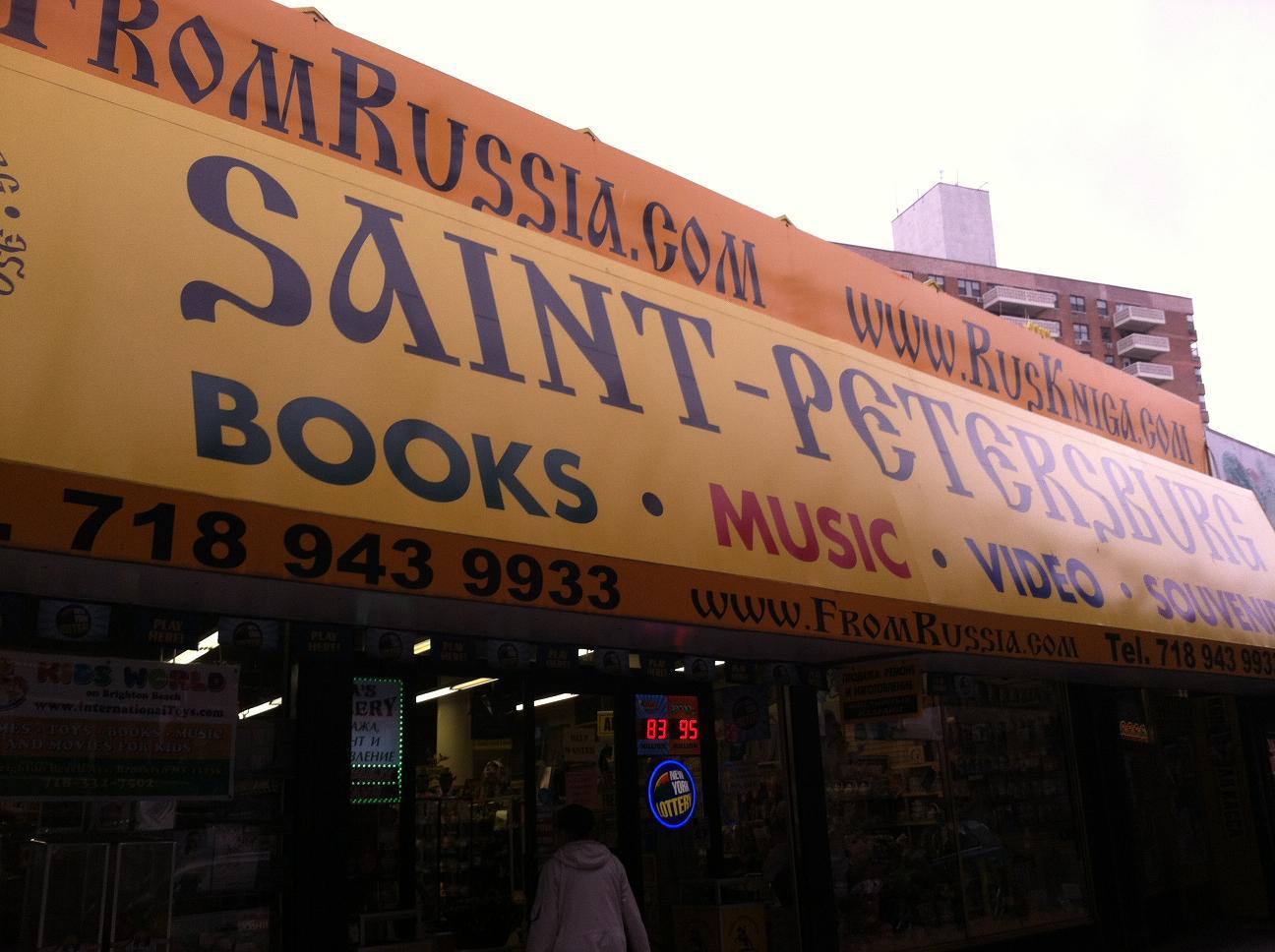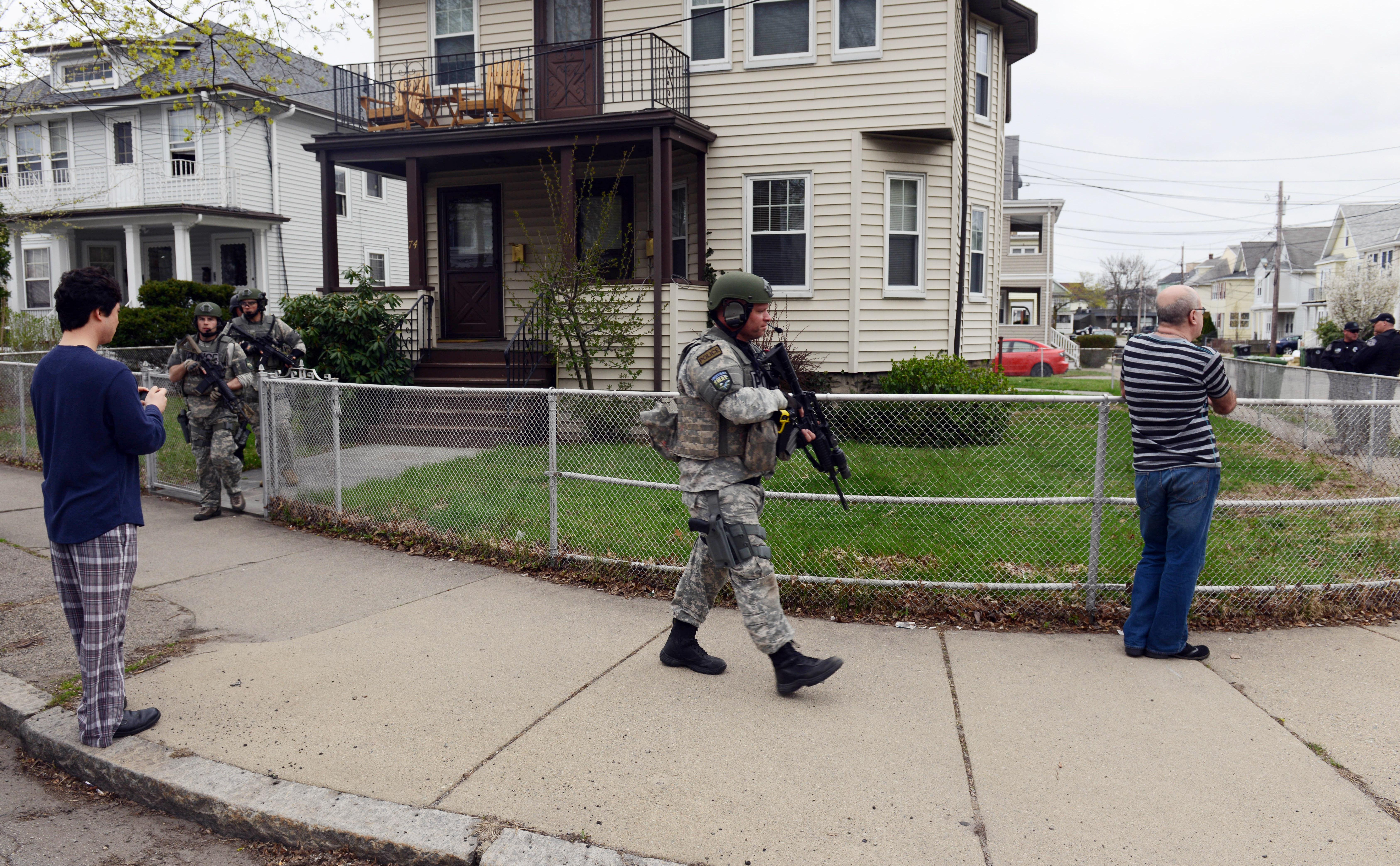Today, after the suspects believed to be responsible for the Boston Marathon bombings were identified as two Chechen brothers, Dzhokhar and Tamerlan Tsarnaev, I got on the F train in New York and headed to Brighton Beach to watch the news unfold with the residents of the Brooklyn neighborhood. For decades, Brighton Beach has been home to one of the country’s largest communities of Russian immigrants. In recent years, many people from other Soviet republics have also moved to the neighborhood. Chechnya, a province of Russia, fought two brutal wars with its neighbor in the 1990s, establishing its independence from Russia in the first war and losing it in the second.
“It’s terrible, it’s not Russia,” Seide, a restaurant owner who has lived in the U.S. for a decade, said of Chechnya, explaining to me that she was terribly saddened by this week’s events. Most Russians are scared to go to Chechnya, she said. Seide questioned why the U.S. government would even allow the Tsarnaevs into the country. “Why did they need to study here?” she asked. “They have university there, student program in Chechnya. Why bring it here?”

Aisha Harris for Slate.
Max, another restaurant owner who came to the U.S. in 1985 as a refugee, expressed similar sentiments. “Why did [the Tsarnaev brothers] deserve to come to this country?” he asked. “They grew up here, they went to school, they got American citizenship—why? Why? They do the same thing in Russia.” When I mentioned reports that the men may have been refugees, like him, his opinion was unchanged. “The problem is today, they use the religion, the refugees, all kind of excuses…and then they bite the hand that feeds them. You don’t do that.” (There are now reports that Dzhokar sought asylum after coming to the U.S. with his family as a tourist in the early 2000s, and became an American citizen last year. His older brother came “a few years later” and at the time of his death was a legal green card-holder.)
Many of those I spoke to declared that Russia and Chechnya are not the same, and emphasized that they did not in any way identify with the attackers’ apparent beliefs. One resident even declined to discuss the events, concerned that Chechnya was being equated in any way with Russia.
Irina, a bookstore employee who has been in the U.S. since 1998, was less emphatic about the differences between her native country and the ancestral homeland of the two suspects. Chechnya “used to be part of” Russia, she said. “And the feelings are mixed. It’s really unpleasant to know that we’re talking the same language, we have the same thoughts, the same feelings, almost the same culture.” “We don’t want anyone to compare us and them,” she added, but “it’s going to happen anyway.”
Irina said everyone around her has been following the story closely. One of her co-workers ran the Boston Marathon on Monday, in fact, though he finished before the bombs went off, and was unharmed.
Read more on Slate about the Boston Marathon bombing.
